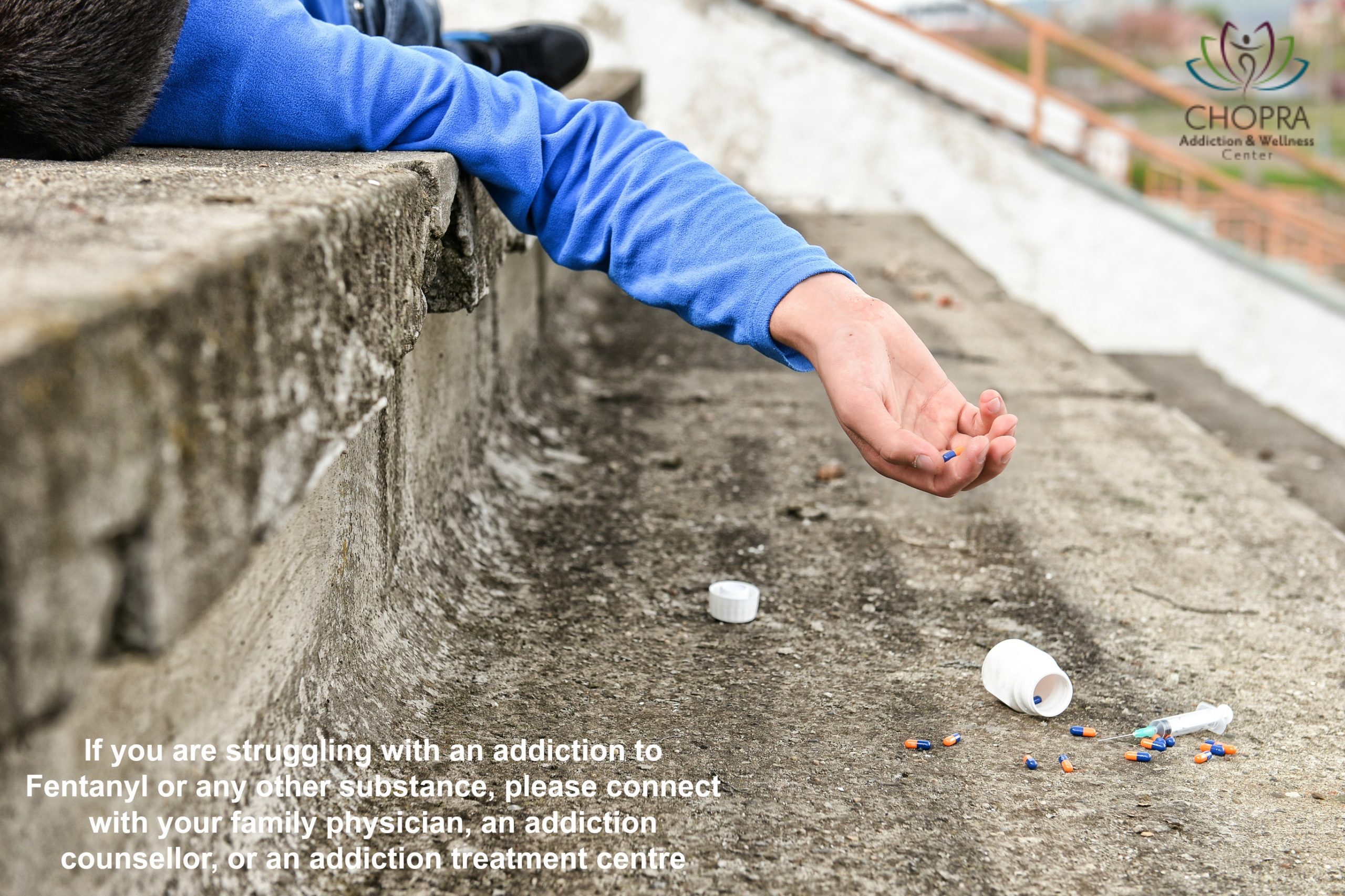Recovering from Fentanyl Addiction

By Nirmala Raniga
When considering addiction, alcohol or illegal substances such as heroin often come to mind. However, many people who struggle with drug abuse are addicted to substances that were once prescribed to them legally for pain management following surgery, injury or accident. Fentanyl is one such substance.
Fentanyl (first synthesized in 1960) is an opioid analgesic, similar to, but roughly 80 to 100 times more powerful than morphine, and 40 to 50 times more powerful than pharmaceutical grade heroin. As mentioned, many patients are prescribed Fentanyl for help with post-surgical or chronic pain. When Fentanyl is prescribed, it can be taken by injection, sublingually as a lozenge, or through the medium of a transdermal patch. Like other opiates, Fentanyl bonds with the brain’s opiate receptors. This process increases dopamine levels, which results in people feeling relaxed and euphoric. As is common with many other drugs, the more an individual uses Fentanyl, the more they will need to increase their frequency and volume of use in order to continue to experience a “high,” and to avoid withdrawal pain. Consequently, Fentanyl is a highly addictive substance. It also disturbs the way the body experiences pleasure by disconnecting individuals from the everyday wonders and experiences of life.
Though Fentanyl is only legally available by prescription, people are gaining access to variations of the drug that are produced in illegal laboratories. During the production process, other drugs are often mixed with or substituted for Fentanyl. Heroin is one such ingredient, an additive or substitution that makes the drug more potent and dangerous. Fentanyl is increasingly being seen by first responders and hospitals as a substitute or “cut” in drugs such as heroin, morphine, crystal methamphetamine and cocaine. Given the potency per volume of fentanyl as compared to heroin and morphine (as well as these other drugs), overdose fatalities have risen sharply in recent years. Other side effects and risks present are nausea, constipation, asthenia, sweating, dizziness, diarrhea, confusion; and even more serious complications including aphasia, falling into a coma, and respiratory issues including arrest resulting in (as mentioned) death.
As the effects of Fentanyl fade, users may feel depressed, or even in pain if they had originally taken the medication to cope with pain issues. People may also exhibit long-term problems, such as lack of good judgment. It is critical that anyone who is trying to end a Fentanyl addiction do so with the aid of a physician. Not only will this help to mitigate the feelings of depression and pain, but it will also help address other symptoms such as anxiety. It is possible to end addiction to Fentanyl successfully, but it may take some time for the body to return to the way it was before the abuse began. Working closely with a physician to address withdrawal symptoms is vital. A medical professional may also recommend outpatient treatments such as Suboxone or Methadone, which can provide stabilization as a component of the healing process.
Several steps are required to successfully get off and stay off Fentanyl. Typically, after safe and supervised medical detoxification, a stay at a residential treatment centre would be next. There, the individual would undergo a biopsychosocial (BPS) assessment, which would be helpful to understand why she is abusing such a powerful pain medication that also numbs emotions. It is important to note that powerful drugs such as Fentanyl, numb many or all emotions, and not just negatively perceived emotions such as anxiety, stress or pain. Individual and group therapy can help address deeper issues at the root of addiction. Identifying and releasing stored emotional pain, destructive thought patterns, and life damaging beliefs, and replacing them with more nurturing, self-empowering behaviors and perspectives are examples of how individual and group therapy can be beneficial. Ideally, a wide array of practices that will aid the return to wholeness should be incorporated. Meditation, yoga, massage, acupuncture, healthy nutrition, developing regular sleep patterns, spending time in nature, and working closely with highly qualified therapists, will all help to create strategies for long-term healthy living and success. Additionally, it is very important to incorporate a comprehensive after-care program to help integrate everything that was learned into daily life, to ensure that the individual has a touch point once he or she returns home.
Very often, we fall under the misconception that if a doctor prescribes something, it is completely safe. And while prescriptions can offer relief, we must fully understand the power of the medications we take. If you or someone you care about is struggling with an addiction to Fentanyl or any other substance, please connect with your family physician, an addictions counsellor, or an addiction treatment centre for resources and guidance on the path toward good health and wellbeing.
Paradise Valley Healing Center is dedicated to assisting individuals in sustaining an addiction-free lifestyle through regular practices of mind-body-spirit wellness that will promote heath and balance. Learn more about the programs we offer at https://paradisevalleyhealing.com/programs/
